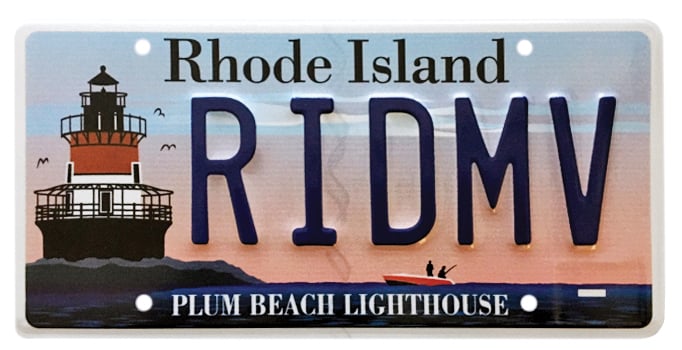Rhode Island
I-195 commission OKs $1 sale offer for Hasbro HQ. They haven’t talked to the company yet. • Rhode Island Current

Rhode Island leaders have been accused of dropping the ball on efforts to keep Hasbro Inc. from moving to Massachusetts.
On Wednesday night, a state panel took matters into its own hands, approving a legally binding resolution offering the toymaker exclusive rights to buy a 1-acre plot of land southeast of downtown Providence for $1. The only problem? They haven’t talked to Hasbro yet.
“We wanted to show them how committed and serious we are,” Marc Crisafulli, chairman of the I-195 Redevelopment District Commission, said during the meeting.
The commission unanimously approved the agreement, which gives Hasbro up to six months — with two additional six-month extensions — to buy the empty land adjacent to the downtown pedestrian bridge.
None of the company’s executives attended the meeting. Andrea Snyder, a spokesperson for Hasbro Inc., declined to comment specifically on the proposal.
“It’s early and we continue to explore options,” Snyder said in an email Thursday.
Hasbro executives have been in talks with Massachusetts officials since at least April over a potential move across state lines into Boston, as first reported by the Boston Business Journal on Sept. 16. Company CEO Chris Cocks has indicated in a series of internal emails that the company’s Pawtucket headquarters is outdated, expressing desire for “modern” and “collaborative” space with accessible public transit. Ahead of a relocation decision — expected in early 2025 — Rhode Island officials have scrambled to come up with a way to keep the century-old company, and one of the top employers, rooted in the Ocean State.
The former state highway land, home to an explosion of commercial and residential development, quickly emerged as a top alternative.
The I-195 commission’s vote specifically offers up the 1-acre site known as Parcel 42. Originally slated to host a controversial, luxury residential skyscraper, the land remains empty after the “Fane Tower” developers pulled out of the project in March 2023.
But, if Hasbro has its eyes on other available space within the district, the commission is open to that too, Crisafulli said.
Mock designs presented by Utile, a Boston-based design consultant, show a 10-story, 286,000-square-foot building, complete with designated manufacturing space, a museum and a two-level underground parking garage with 150 spaces.
Tim Love, founding principal of Utile, said the renderings were not intended as a final design or concept but merely a “test run” to see if the site could fit Hasbro’s needs.
The company’s existing, circa-1900 industrial space on Newport Avenue is 300,000 square feet. Pawtucket Mayor Don Grebien’s office has previously indicated his desire to keep Hasbro in Pawtucket.
Grace Voll, a spokesperson for Grebien, said the city is “in the process of finalizing” its own pitch to Hasbro.
“Despite the vote in Providence yesterday, we still remain confident that Pawtucket is a viable option for Hasbro, and we look forward to presenting them with their options in the City that they have resided in for the last 60+ years,” Voll said in an email Thursday.
Hasbro was founded in 1923 in Providence as a family-owned pencil-box maker, relocating its headquarters to Pawtucket in 1968. Now a publicly traded, multinational company with 5,000 employees — at least 1,000 of whom work out of Rhode Island — the game and toy empire generated $223 million in profits for the three months that ended Sept. 29, its most recent financial report.
GET THE MORNING HEADLINES.

Rhode Island
Attorney General Neronha endorses Democrat Helena Foulkes for Rhode Island Governor

(WJAR) — Rhode Island Attorney General Peter Neronha endorsed Democrat Helena Foulkes in her bid for Rhode Island Governor on Thursday.
Neronha spoke at a campaign event with Foulkes.
The term-limited Attorney General says he hadn’t been comfortable endorsing people because of his position.
Neronha said he had gotten to know Foulkes after she reached out to him about health care, an issue Neronha has been vocal about.
“I found Helena to be a great listener, a great thought partner, a person of integrity and character, and that is foremost why I’m endorsing her today,” he said.
“What Rhode Island needs today and into the future is strong capable leadership,” he said. “This is not a state that can afford to keep muddling around in the four, eight, ten, fifteen years.”
He said Foulkes could offer bold leadership.
Neronha has publicly admitted to having a strained relationship with Gov. Dan McKee.
JOIN THE CONVERSATION (1)
This story will be updated.
Rhode Island
RI Lottery Powerball, Numbers Midday winning numbers for March 4, 2026
The Rhode Island Lottery offers multiple draw games for those aiming to win big.
Here’s a look at March 4, 2026, results for each game:
Winning Powerball numbers from March 4 drawing
07-14-42-47-56, Powerball: 06, Power Play: 4
Check Powerball payouts and previous drawings here.
Winning Numbers numbers from March 4 drawing
Midday: 2-7-4-4
Evening: 7-6-0-2
Check Numbers payouts and previous drawings here.
Winning Wild Money numbers from March 4 drawing
08-11-12-18-24, Extra: 15
Check Wild Money payouts and previous drawings here.
Winning Millionaire for Life numbers from March 4 drawing
12-13-36-39-58, Bonus: 03
Check Millionaire for Life payouts and previous drawings here.
Feeling lucky? Explore the latest lottery news & results
Are you a winner? Here’s how to claim your prize
- Prizes less than $600 can be claimed at any Rhode Island Lottery Retailer. Prizes of $600 and above must be claimed at Lottery Headquarters, 1425 Pontiac Ave., Cranston, Rhode Island 02920.
- Mega Millions and Powerball jackpot winners can decide on cash or annuity payment within 60 days after becoming entitled to the prize. The annuitized prize shall be paid in 30 graduated annual installments.
- Winners of the Millionaire for Life top prize of $1,000,000 a year for life and second prize of $100,000 a year for life can decide to collect the prize for a minimum of 20 years or take a lump sum cash payment.
When are the Rhode Island Lottery drawings held?
- Powerball: 10:59 p.m. ET on Monday, Wednesday, and Saturday.
- Mega Millions: 11:00 p.m. ET on Tuesday and Friday.
- Lucky for Life: 10:30 p.m. ET daily.
- Millionaire for Life: 11:15 p.m. ET daily.
- Numbers (Midday): 1:30 p.m. ET daily.
- Numbers (Evening): 7:29 p.m. ET daily.
- Wild Money: 7:29 p.m. ET on Tuesday, Thursday and Saturday.
This results page was generated automatically using information from TinBu and a template written and reviewed by a Rhode Island editor. You can send feedback using this form.
Rhode Island
Ranking Rhode Island’s Most Popular Charity License Plates – Rhode Island Monthly

When it comes to expressing ourselves, Rhode Islanders have elevated license plates to an art form. You might not be able to get a new vanity plate — the state suspended applications in 2021 after a judge ruled a Tesla owner could keep his FKGAS plates — but you can still express your Rhody pride with one of seventeen state-approved charity plates. The program has funded ocean research, thrown parades, saved crumbling lighthouses and even provided meals for residents. About half of the $43.50 surcharge goes to the associated charity, while the other half covers the production cost.
________________________
License plate images courtesy of the Rhode island division of motor vehicles.
Atlantic Shark Institute
Year first approved: 2022
Plates currently on road: 7,007
Total raised: $269,530
________________________

License plate images courtesy of the Rhode island division of motor vehicles.
Friends of Plum Beach Lighthouse
Year first approved: 2009
Plates currently on road: 5,024
Total raised: $336,890
________________________

License plate images courtesy of the Rhode island division of motor vehicles.
Wildlife Rehabilitators Association of Rhode Island
Year first approved: 2013
Plates currently on road: 2,102
Funds raised: $32,080
________________________

License plate images courtesy of the Rhode island division of motor vehicles.
Rocky Point Foundation
Year first approved: 2016
Plates currently on road: 1,616
Funds raised: $50,450
________________________

License plate images courtesy of the Rhode island division of motor vehicles.
Rhode Island Community Food Bank
Year first approved: 2002
Plates currently on road: 765
Funds raised since 2021: $11,060*
*Prior to 2021, customers ordered plates directly through the food bank, and total revenue numbers are not available.
________________________

License plate images courtesy of the Rhode island division of motor vehicles.
New England Patriots Charitable Foundation
Year first approved: 2009
Plates currently on road: 1,472
Funds raised: $136,740
________________________

License plate images courtesy of the Rhode island division of motor vehicles.
Audubon Society of Rhode Island and Save the Bay
Year first approved: 2006
Plates currently on road: 1,132
Funds raised: $61,380 for each organization (proceeds split evenly)
________________________

License plate images courtesy of the Rhode island division of motor vehicles.
Boston Bruins Foundation
Year first approved: 2014
Plates currently on road: 1,125
Funds raised: $36,880
________________________

License plate images courtesy of the Rhode island division of motor vehicles.
Beavertail Lighthouse Museum Association
Year first approved: 2023
Plates currently on road: 1,105
Funds raised: $37,610
________________________

License plate images courtesy of the Rhode island division of motor vehicles.
Bristol Fourth of July Committee
Year first approved: 2011
Plates currently on road: 1,104
Funds raised: $17,640
________________________

License plate images courtesy of the Rhode island division of motor vehicles.
Red Sox Foundation
Year first approved: 2011
Plates currently on road: 860
Funds raised: $88,620
________________________

License plate images courtesy of the Rhode island division of motor vehicles.
Gloria Gemma Breast Cancer Resource Foundation
Year first approved: 2012
Plates currently on road: 1,510
Funds raised: $33,360
________________________

License plate images courtesy of the Rhode island division of motor vehicles.
Providence College Angel Fund
Year first approved: 2016
Plates currently on road: 693
Funds raised: $23,220
________________________

License plate images courtesy of the Rhode island division of motor vehicles.
Rose Island Lighthouse and Fort Hamilton Trust
Year first approved: 2022
Plates currently on road: 383
Funds raised: $10,640
________________________

License plate images courtesy of the Rhode island division of motor vehicles.
Friends of Pomham Rocks Lighthouse
Year first approved: 2022
Plates currently on road: 257
Funds raised: $7,580
________________________

License plate images courtesy of the Rhode island division of motor vehicles.
Day of Portugal and Portuguese Heritage in RI Inc.
Year first APPROVED: 2018
Plates currently on road: 132
Funds raised: $3,190
-

 World1 week ago
World1 week agoExclusive: DeepSeek withholds latest AI model from US chipmakers including Nvidia, sources say
-

 Massachusetts1 week ago
Massachusetts1 week agoMother and daughter injured in Taunton house explosion
-

 Wisconsin4 days ago
Wisconsin4 days agoSetting sail on iceboats across a frozen lake in Wisconsin
-

 Maryland5 days ago
Maryland5 days agoAM showers Sunday in Maryland
-

 Florida5 days ago
Florida5 days agoFlorida man rescued after being stuck in shoulder-deep mud for days
-

 Massachusetts3 days ago
Massachusetts3 days agoMassachusetts man awaits word from family in Iran after attacks
-

 Denver, CO1 week ago
Denver, CO1 week ago10 acres charred, 5 injured in Thornton grass fire, evacuation orders lifted
-

 Oregon6 days ago
Oregon6 days ago2026 OSAA Oregon Wrestling State Championship Results And Brackets – FloWrestling




















